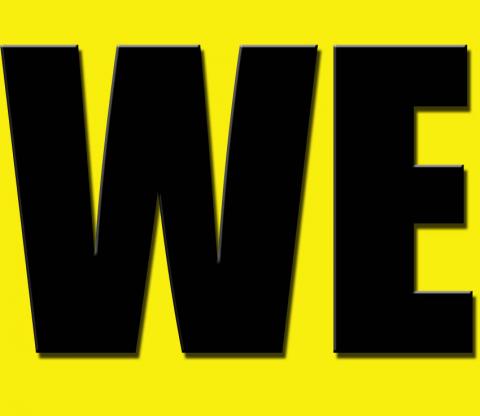“Who’s this ‘we’ paleface?”

A brief history of “they” and “we” in Irish politics.
When an element of political discourse so taken-for-granted as to be almost invisible is suddenly replaced by its diametric opposite, we should ask what this implies. Since 1922, it has been a commonplace in Irish politics to find someone else (“them”) to blame whenever something goes wrong. Yet suddenly “we” are all in this together. What’s going on?
In post-colonial studies, it is almost banal to assert that the citizens of a newly-independent state retain a subservient attitude to authority, even if that authority is now constituted by a local political elite rather than being imposed by the colonist. After decades or centuries of taking instruction, so the reasoning goes, post-colonial peoples find it difficult to make decisions for themselves: they regard themselves as subjects of history rather than its agents. Yet at the same time, the fact that authority has, for so long, been wielded by the colonist, creates suspicion about the motives of anyone – local or foreign - exercising authority.
Curiously this capacity to blame those exercising authority was particularly evident among those elites that most objective observers would regard as constituting authority. Thus early Irish administrations could blame the UK for any ills visited upon Irish society. However, as the state developed it became harder and harder to identify the British as the cause of all our problems. Despite this, the tendency to blame an (often vaguely defined) “other” or “them” for a whole range of difficulties continued to play a crucial role in Irish political discourse. Thus in the 1930s and 1940s, “communism” could be blamed for inciting Irish workers to complain about their working and living conditions (rather than their objective poverty.) A 1942 Irish government report on cinema could slyly blame the Jews (who constituted a whole 0.3% of the population) for presenting dangerous “alien” ideas to Irish audiences. And the list goes on: the IRA constituted a bigger and bigger “they” as the Troubles broke out from 1969. Tellingly, Gerry Adams’ unscripted remark to a 1995 demonstration in Belfast about the IRA “They haven’t gone away you know” could be, and was, re-applied to a whole range of groups and institutions within Irish society as the 1990s and noughties progressed.
And the last two decades threw up an endless stream of “theys” to point a finger at as it came to appear that virtually every institution in the country had skeletons in the closet: the church, the Gardai, the Blood Transfusion Service, politicians etc. However, that these institutions were overtly from within rather than outside the state did not curtail the tendency to blame “them”. Indeed use of the word “they” allowed institutions to perform quite remarkable semantic feats, disavowing responsibility for their actions by referring to earlier incarnations of those institutions as “them”. Thus, as newly elected leader of Fianna Fáil in 1994, Bertie Ahern could contemplate a period in opposition with equanimity because it created a temporal gap between “his” Fianna Fáil and that of the Haughey era.
And yet suddenly “we are all in this together”, “we are where we are” etc.
We become “we” when we all accept a common identification of an “other”. And the WAWWA merchants have identified a pretty impressive set of others which dwarf Ireland – specifically the ECB, the IMF, the “bondholders” and more broadly, market capitalism and globalisation – and which are demanding money from “us” with menaces.
When things go wrong it is only natural that those responsible will seek to spread the blame. When the Irish state fails to adequately regulate the banks of its banks and the entire country is bankrupted, it’s not surprising that the state will seek others to point the finger out. True, they do not entirely deny their culpability but they dismiss it: “we are where we are”.
But it is when it comes to addressing the problem that the political intent of suddenly adopting the first person plural (“we”) become obvious. It makes it possible for the state to contemplate measures like the four-year plan. Instead of the state acting as the welfare state is meant to be - standing in front of the weakest members of society and taking the force of the blow - it singles out those at the bottom of the pile, those on the minimum wage and social welfare, and uses them as a shield.
“We” are not where we are. They (the banks, the government, the ECB, the Euro) are where they are.
Roddy Flynn is a lecturer in the School of Communications, DCU.
